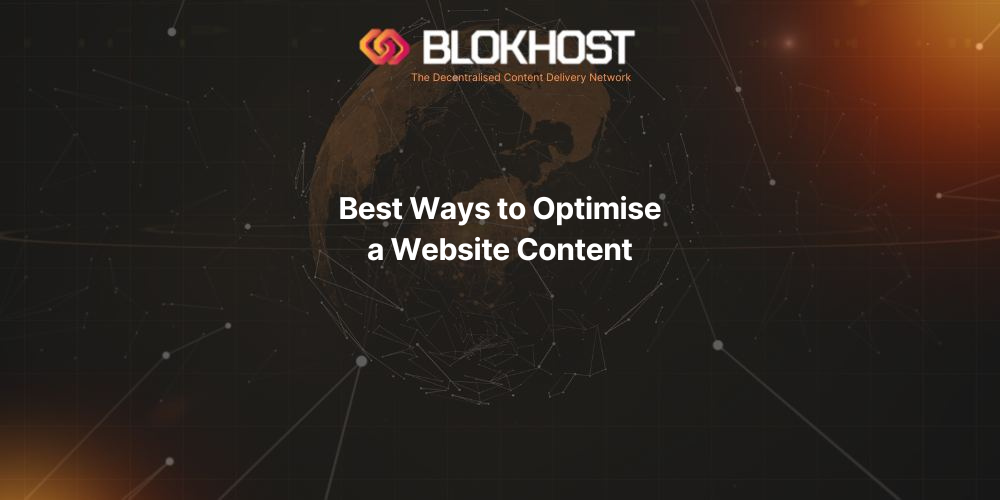
Best Ways to Optimise a Website Content
5 minute read
Importance of Optimising Website Content
Optimising your website content is crucial in improving your site’s visibility, search engine rankings, and overall user experience. It can make the difference between a thriving online presence and getting lost in the vast expanse of the internet. So let’s dive into the key areas to focus on to optimise your website content effectively.
Keyword Research
Identifying Your Target Audience
Understanding your target audience is the first step to optimising your website content. Identifying their needs, interests, and preferences will help you create content that resonates with them. This, in turn, will improve user engagement and increase the likelihood of higher search engine rankings.
Long-tail Keywords vs Short-tail Keywords
Keyword research is the foundation of any SEO strategy. Long-tail keywords are more specific and often have lower search volumes, but they can lead to higher conversion rates. Short-tail keywords, on the other hand, are more general and have higher search volumes but may be more competitive. It’s essential to balance the two to maximise your content’s visibility.
Quality Content Creation
Engaging and Informative Content
Creating engaging and informative content is vital to attract and retaining users. Use a conversational tone, incorporate anecdotes, and include relevant examples to make your content more relatable and engaging.
Writing for Your Target Audience
Tailor your content to your target audience’s preferences, addressing their questions, concerns, and needs. This approach will help you establish trust and credibility, which are essential for building a loyal user base.
Readability and Formatting
Ensure your content is easy to read and understand using short paragraphs, bullet points, and subheadings. Proper formatting will make your content more accessible and improve the user experience.
On-page SEO Techniques
Optimising Title Tags and Meta Descriptions
Title tags and meta descriptions are crucial in providing search engines and users an overview of your content. Ensure they are optimised with relevant keywords, are within the recommended character limit, and accurately represent the content on your page.
Header Tags and Subheadings
Utilise header tags (H1, H2, H3, etc.) to structure your content, making it easier for search engines and users to navigate. Including target keywords in your header tags can also improve your content’s relevance and search engine ranking.
Internal Linking
Internal linking connects your content and helps search engines understand the structure of your website. It also aids users in navigating your site and discovering relevant content, which can improve user engagement and reduce bounce rates.
Image Optimisation
Optimising images is essential for improving page load speeds and user experience. Use descriptive file names, alt tags, and compressed images to enhance your content’s SEO performance.
Off-page SEO Techniques
Building Quality Backlinks
Backlinks from reputable websites signal to search engines that your content is valuable and trustworthy. Focus on building high-quality backlinks through guest blogging, outreach, and creating shareable content.
Social Media Engagement
Promoting your content on social media platforms can increase visibility, drive traffic, and generate engagement. Create shareable content that resonates with your audience, and encourage them to like, comment, and share.
Mobile Responsiveness and Site Speed
Responsive Design
With most users accessing websites on mobile devices, having a responsive design is crucial. Ensure your website adapts to different screen sizes and devices for an optimal user experience.
Optimising Site Speed
Slow-loading websites can lead to poor user experience and lower search engine rankings. Instead, optimise your site speed by compressing images, enabling browser caching, and using a content delivery network (CDN).
Measuring Success
Google Analytics
Google Analytics provides insights into your website’s performance, including user engagement, traffic sources, and user behaviour. Use this data to make informed decisions and improve your content strategy.
Search Console
Search Console offers valuable information on your website’s search performance, indexing status, and technical issues. Regularly monitoring this data can help you optimise your content and resolve issues that may affect your search engine rankings.
Conclusion
Optimising your website content is an ongoing process that requires consistent attention and effort. By focusing on keyword research, quality content creation, on-page and off-page SEO techniques, mobile responsiveness, site speed, and measuring success, you can significantly improve your website’s visibility, user experience, and search engine rankings.
FAQs
How often should I update my website content?
Regularly updating your website content ensures it stays relevant, fresh, and engaging for users. Aim to review and update your content periodically based on industry trends and user feedback.
How can I find the right keywords for my content?
Use keyword research tools like Google Keyword Planner, Ahrefs, or SEMrush to identify relevant, high-traffic keywords with low competition.
What is the ideal content length for SEO?
This question has no definitive answer, as the ideal content length depends on the topic and your audience’s preferences. Generally, long-form content (1,000-2,000 words) tends to perform better in search engine rankings.
What are the most important on-page SEO elements?
The most important on-page SEO elements include title tags, meta descriptions, header tags, internal linking, image optimisation, and keyword usage in your content.
How can I track the success of my SEO efforts?
Google Analytics and Search Console can help you monitor your website’s performance, search rankings, and user behaviour. Regularly reviewing this data will allow you to make informed decisions and fine-tune your SEO strategy.


